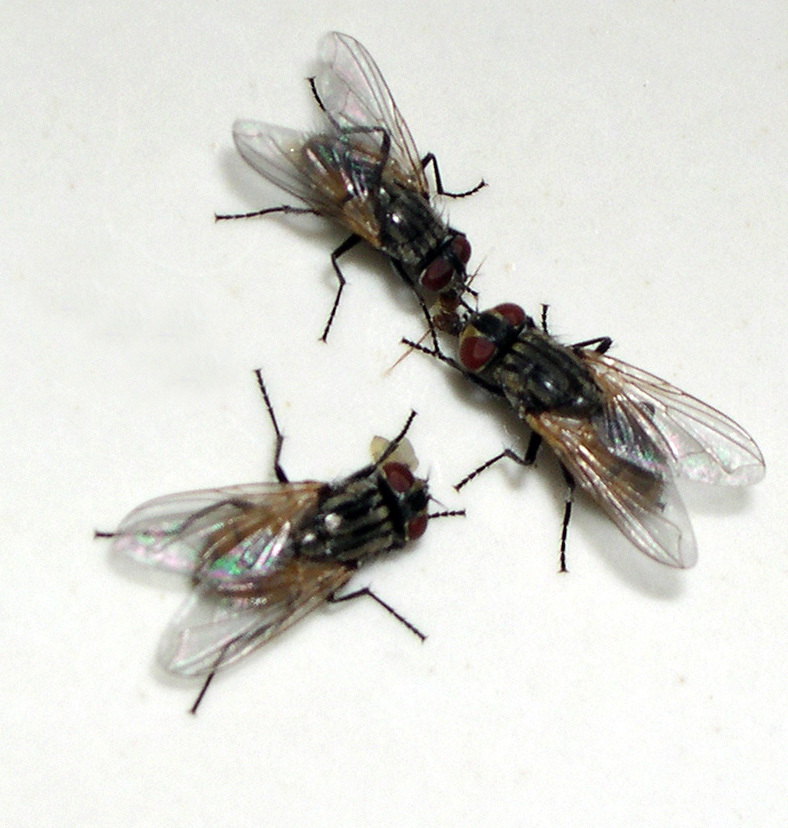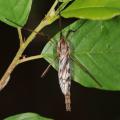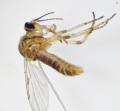Diptera.info :: Identification queries :: Diptera (adults)
Who is here? 1 guest(s)
|
Musca domestica?
|
|
| jorgemotalmeida |
Posted on 31-08-2006 22:30
|
|
Member Location: Viseu - PORTUGAL Posts: 9296 Joined: 05.06.06 |
Three flies talking about diptera.info  Taken on 13th July 2006 in Silgueiros - Viseu - PORTUGAL Muscidae by sure... Musca domestica??? jorgemotalmeida attached the following image:  [189.73Kb] |
| Tony Irwin |
Posted on 01-09-2006 09:17
|
|
Member Location: Norwich, England Posts: 7280 Joined: 19.11.04 |
I'd say domestica - female with narrow frontal orbits, male with eyes separated by more than the width of first flagellomere (third antennal segment)
Tony ---------- Tony Irwin |
|
|
|
| jorgemotalmeida |
Posted on 01-09-2006 13:32
|
|
Member Location: Viseu - PORTUGAL Posts: 9296 Joined: 05.06.06 |
Tony Irwin wrote: I'd say domestica - female with narrow frontal orbits, male with eyes separated by more than the width of first flagellomere (third antennal segment) So, just we have one female and two males in this pic, right?  Female is one above in relation to other 2 flies? Female is one above in relation to other 2 flies?To split Musca in domestica and autumnalis, we just need see reddish hue in abdomen? (this case for autumnalis?) How can we have sure? |
| Tony Irwin |
Posted on 01-09-2006 15:16
|
|
Member Location: Norwich, England Posts: 7280 Joined: 19.11.04 |
No,we have two females (lower, with broader abdomens and wider frons) and one male (upper, with narrower abdomen and frons). The colour of Musca domestica abdomen varies, often depending on where you are. Sometimes (as in your photo) both male and female have pale side patches. In autumnalis the male often has bright orange patches, but the female is all grey. It's safer to rely on the relative widths of the frons and orbits. In autumnalis the male eyes are narrowly separated, and the female frontal orbits are very wide (each nearly as wide as the frontalia). In domestica the male eyes are separated by about twice the width of the third antennal segment, and the female orbits are only about a fifth the width of the frontalia. And don't forget that although these are the commonest species, there are other species in Europe as well. Edited by Tony Irwin on 01-09-2006 15:19 Tony ---------- Tony Irwin |
|
|
|
| Jump to Forum: |













